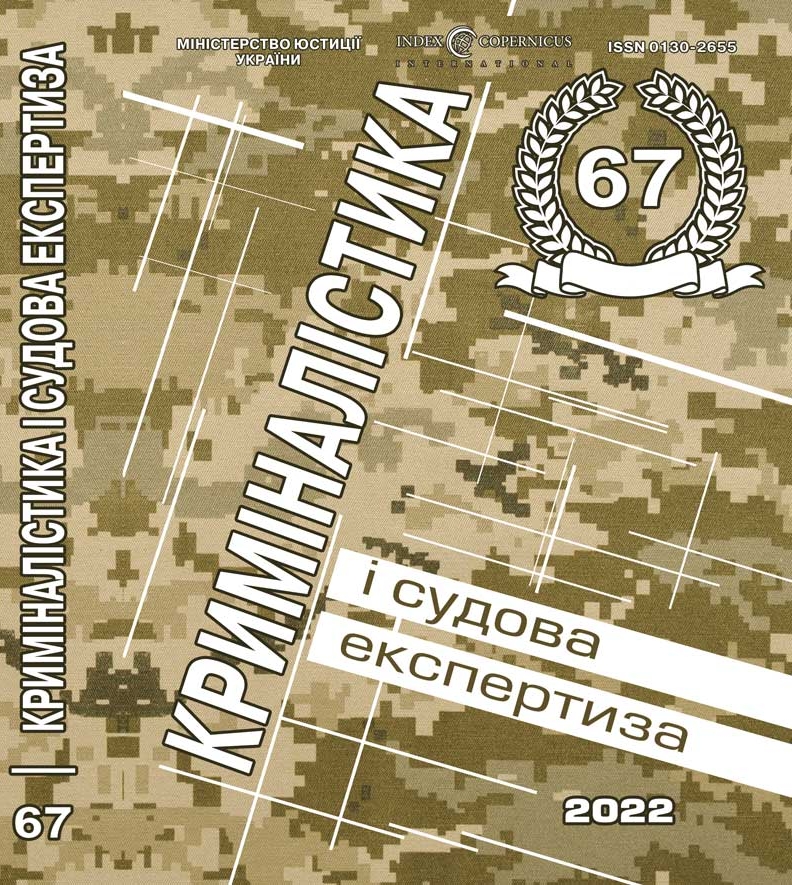
DOI: https://doi.org/10.33994/kndise.2022.67.31
O. Ryzhyi
The article is devoted to the scientific analysis of the assessment of the testimony of a suspect, accused, witness, victim, or expert in the court of the first instance. In order to establish the subjects authorized to carry out these activities in the criminal process, such
categories as “assessment of evidence”, “activity of the court in the study of evidence”,
and “competitiveness” have been researched and analyzed. Arguments are given that in
the process of judicial proceedings in the court of the first instance, the only subject of
evaluation of testimony and evidence is the court.
Evaluation of the testimony of a suspect, accused, witness, victim, an expert in a court of the first instance is the mental logical activity of a judge, which consists of the fact that, guided by the law and legal consciousness, the judge, according to his inner conviction, considers the information contained in the testimony separately, as well as in conjunction with other evidence determines their belonging, admissibility, reliability, and sufficiency for making intermediate and final decisions in judicial criminal proceedings. In other words, this is the acceptance by the court of the legal quality of the testimony provided by the parties or collected by the court, as a result of which they acquire or do not acquire legal force.
Key words: criminal proceedings, testimony, evaluation of evidence, trial.










